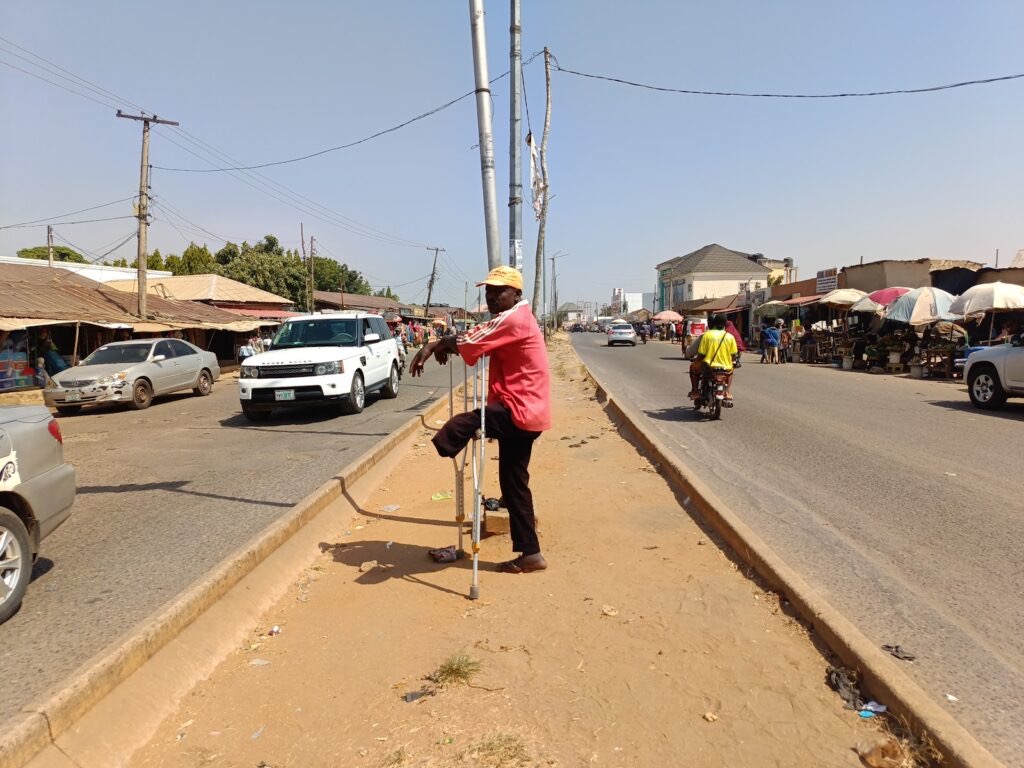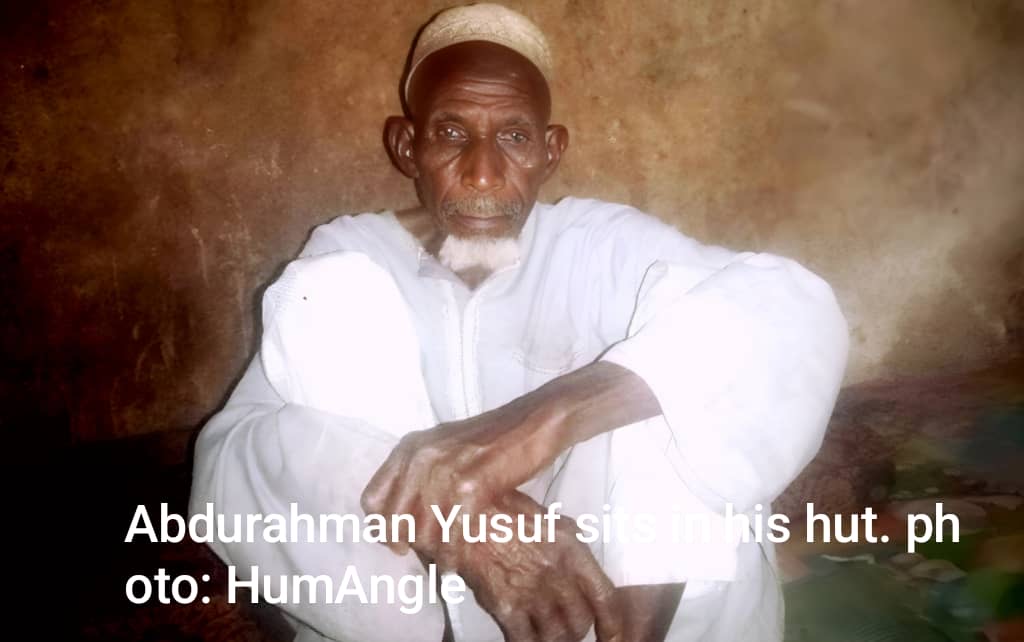By Umar Babangida.
The street beggars in Nigeria’s capital city, Abuja, have refused to leave the city, despite the order for their arrest.
Most of the beggars who have turned Abuja to a goldmine are impecunious, famished, and poverty-stricken.
Some are disabled – crippled and visually impaired.
They now live in fear that they could be forced out of the city.
It should be noted that the city had continously forbidden beggars and in many instances forced out.
They are refusing to return to their homes in far north because of the fear of terrorists and bandits that have been tormenting their villages.
The Minister of Federal Capital Territory, Mr Nysom Wike, has threatened to forcefully eject them from the streets of Abuja because they have constituted eyesore in a city that hosts many foreign visitors and investors.
The minister was quoted saying: “Let me state clearly that we have declared war; Abuja is turning into a beggar city. If you know you have a sister or brother who is a beggar, please, from next week, we will take them away.
“It is embarrassing that people will come in and the first things they will see are just beggars on the road”.
These beggers from different parts of the north embraced begging as the only source of their livelihood as they couldn’t work to cater for their needs.

Meanwhile, the current excruciating hardship in the country has swelled the numbers of beggars.
However, people who have displaced by the heinous activities of armed-banditry, in their states, are always running to Abuja, where they are begging for food after they lost all their belongings to the terrorists.
It’s now obvious that five out of every ten beggars in Abuja are mostly forced to leave their community out of fear of being kidnapped, killed, raped and maimed among others.
These beggars know nothing other than farming and cattle rearing, but today they couldn’t dare go to their farms because of bandits and insurgents.
They could be described as displaced and most of their farms are either confiscated or inaccesdible.
They fear they could be kidnapped and be made to pay ransom by terrorists.
In a report written by Humagle, one of the beggara who is now hiding in a hut narrated how he was coping with life and struggling to feed himself because he can’t go out to beg and he can’t dare to go back to their community which has since become battlefield and under the control of terrorists.

68- year-old, Abdurahman Yusuf, said that “Everyone wants to live in a peaceful environment. ”
“I would never leave my home in the first place if everything was fine and come here to suffer. We were forced to flee our homes by terrorists; we came here to seek refuge, and now we are asked to leave.”
Yusuf was one of the victims who fled their hometown, Tsabare community in Zamfara state, epicentre of banditry.
He was a farmer before the escalation of insecurity in their communities, and in the state entirely, which forced him to leave his farms, house to embrace begging for survival.
Bilkisu Shu’aibu, the wife of late sarkin makafi, narrates her ordeals as she was forced to be confined in a hut, out of fear of arrest.
“Where do they want us to go?” she asked.
“I’ll gladly stop begging if I get some support to start a little business in the comfort of my hut. But I can never go back home because it’s not peaceful.”
“I am blind, and I can’t farm. Those who do not have any form of disability are not allowed to enjoy their gains; how then can we enjoy ours?” she added.
Furthermore, Yusuf recounted the horrors he left behind in Tsabare, including the murder of his in-laws and neighbour by armed terrorists.
He takes long pauses as his face gleams with the pain echoing in his voice .“They were killed by the same bullet. I can never forget that day,” he said.
“If they know you have harvested your crops, they steal half of it and burn the remaining grains.
How can we live in such an environment?
There is no food, and you can’t do any business in your village.”
For 47-year-old Yusuf Sa’adatu, returning home is equally unthinkable.

Even after she lost her niece to gunshots by terrorists,
Sa’adatu couldn’t travel. Recently, she travelled to Tsabare to mourn a family member but was forced to flee again after another terror attackd.
“I couldn’t spend three days there,” she recounted.
“My neighbour and his son were attacked in their home and butchered with a cutlass.
Before then, the terrorists had invaded their farmland and carted away with all their grains.”
“The only peaceful sleep you can enjoy in Tsabare community is death. You can’t sleep peacefully,” she said remorsefully.
The instruction of the minister has forced many beggars to start fleeing the city and returning to their states for those who are not living in the areas ravaged by insecurity.
While others, who chose to remain in Abuja instead of going back to their homes to face insecurity are rooted in their confined places.
























